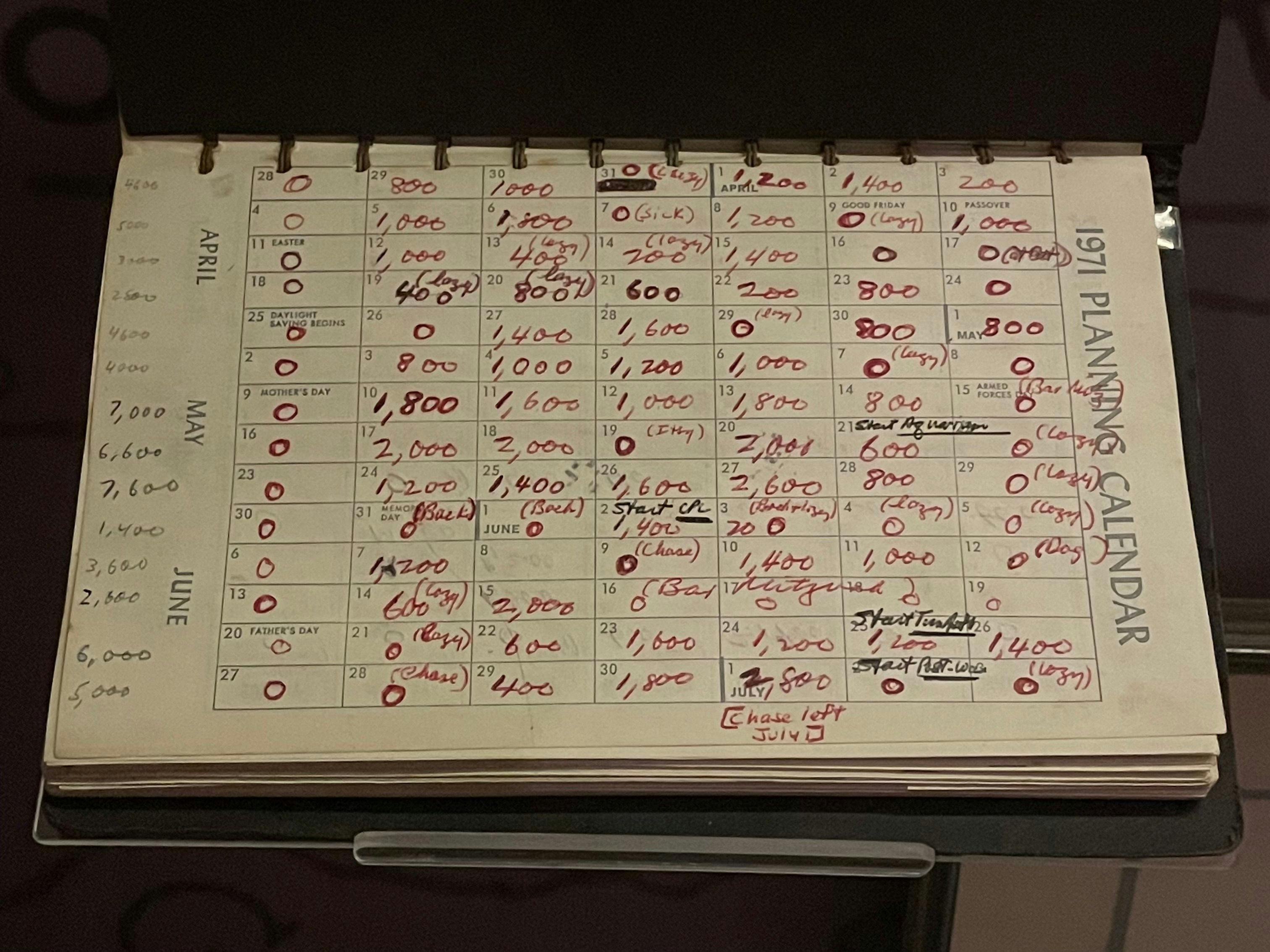Keeping a daily journal with Notion
I've been a big fan of Notion for years, since I first learned about it in late 2018. I run my freelancing business on Notion, using it to keep track of all my meeting notes, project details, client directories, task lists, and development timelines.
I've also extended it into my personal life for daily journaling and habit-tracking. A habit tracker is a case study in how Notion databases can be configured to create adaptable, powerful tools. Here's how you can create one, too:
- Create a new database. Call it "Journal," "Habits," or whatever else you'd like.
- Create a new template for your database. Templates can be created from the menu under the dropdown arrow
⌄next to the "New" button in the upper right of the database. - In the new template, title it as “@Today,” then select the "Date when duplicated" option. This will set the title of each entry to the date it's created, giving each journal entry a unique title that's easy to find when searching.
- Add a "Date" type property. Like with the title, select "Date when duplicated" as its value. This will help with filtering and sorting views to allow you to view entries by day, week, month, or year.
- Leave the template editor, then again open the template menu from the dropdown menu next to the "New" button. Open the menu for the “@Today” template you just created by clicking its
•••button. Select "Repeat," then configure the template to repeat daily at whatever time you'd like (I chose 7 AM).
Finally, I set up three views on my database:
- a table view that gives me a reverse-chronological list of all my entries, which is great for getting a high-level look at my habit-building progress;
- a weekly calendar view;
- and a monthly calendar view.
With this, every day a new entry will automatically appear in the database that's automatically set to the date it was created. From here, add new properties to your database for tracking habits. Since each entry also has its own free-form body, this serves as a blank page for a daily journaling habit, as well.
For example, my database has a checkbox property for "Did I exercise today?" Inspired by the word-counting calendar Robert Caro kept while writing The Power Broker, I also keep track the number of words I write each day.

A page from Caro's word-counting diary was exhibited as part of "'Turn Every Page': Inside the Robert A. Caro Archive," which is still on display as of the time I'm writing. Good on Bob for taking Sundays off.
New York Historical Society Museum & LibraryLike I said, this is a great case study for the power and flexibility Notion affords. To me, their stated mission—"to make toolmaking ubiquitous"—continues on the tradition established by the founders of personal computing. It's not the perfect tool for every situation, but it's filled so many niches that it's hard to imagine working without it.